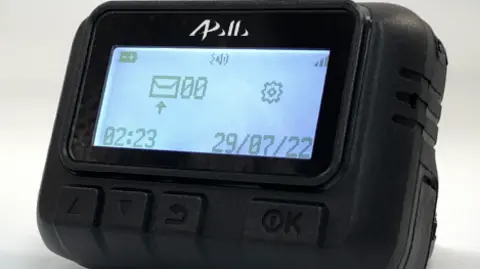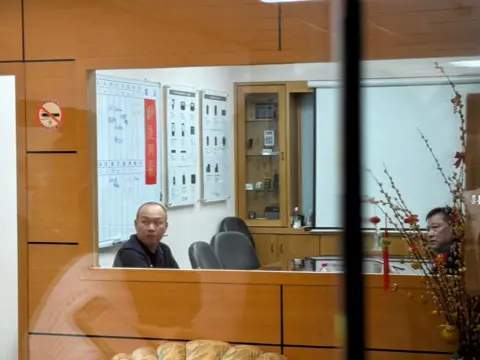 BBC
BBCThe race to find the maker of the pagers that exploded in Lebanon has taken an unexpected turn – towards a Taiwanese company few had heard of until this morning.
At least 12 people were killed and nearly 3,000 injured in Tuesday’s explosions targeting members of the armed group Hezbollah, which set off a geopolitical storm in the Middle East.
Caught in the crisis, Taiwanese firm Gold Apollo’s founder Hsu Ching-Kuang flatly denied his company had anything to do with the attacks.
Instead, Mr Hsu has said he licensed his trade mark to a company in Hungary called BAC Consulting to use the Gold Apollo name on their own pagers. BBC attempts to contact BAC have so far been unsuccessful.
### Additional Insight:
The intricate web of global manufacturing processes highlights the challenges in tracing the origins of products, especially in crisis situations.
 Joy Chiang/ BBC
Joy Chiang/ BBCNevertheless, Mr Hsu’s statement that his company didn’t make the devices is plausible.
Taiwan’s manufacturing system is a complex maze of small companies, many of which do not actually make the products they sell. They may own the brand name, the intellectual property and have research and design departments. But most of the actual manufacturing is farmed out to factories in China or Southeast Asia.
Pagers are also hardly cutting-edge technology – there are many companies across the world capable of making them.
They are small radio receivers with LED screens that can receive and display messages. In the 1980s and 1990s electronic pagers were considered to be the latest tech, used by tens of millions of people. Before mobile phones, companies used pagers to send short text messages to employees in the field.
 Joy Chiang/ BBC
Joy Chiang/ BBCBut in the last two decades the rise of the smart phone has pushed pagers to the brink of extinction. They are now a niche device holding on in places like hospitals – where they remain a cheap and reliable method for messaging doctors and nurses, even when other communication lines are disrupted.
Starting in the late 2000s, Gold Apollo too started moving away from making electronic pagers and started manufacturing other short-range radio devices – particularly for restaurants. The company’s most successful product now is a round disc that is handed to customers in food courts and restaurants once they place an order – it lights up and vibrates when their order is ready.
It’s likely that Gold Apollo’s brand name – as a reliable pager manufacturer – was useful in selling the pagers that ended up with Hezbollah.
But there are still more questions than answers in this extraordinary story.
We know almost nothing about BAC Consulting – who is or was behind it?
If Gold Apollo did not make the pagers used in the attack in Lebanon, then who did and where?














